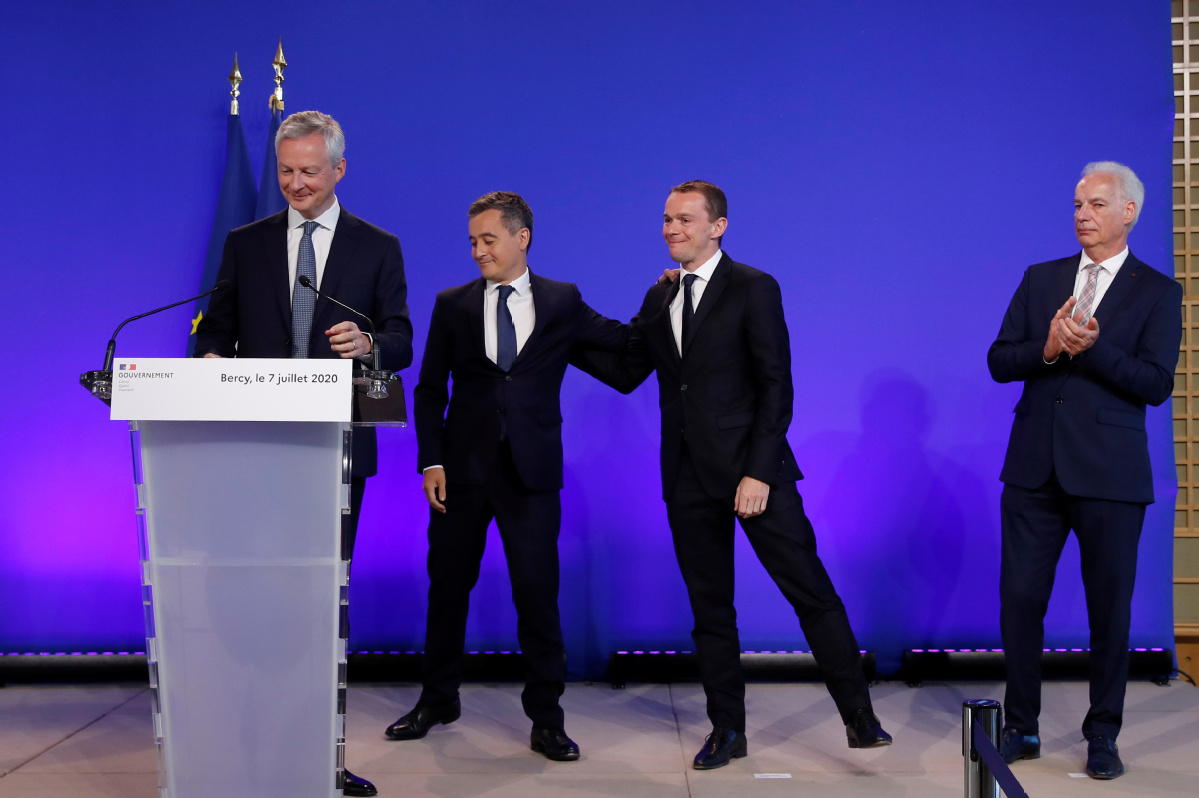Macron fights back with Cabinet reshuffle
By CHEN YINGQUN | China Daily Global | Updated: 2020-07-08 10:35

After drubbing in municipal elections, French leader pins hope on new team
French President Emmanuel Macron unveiled a Cabinet reshuffle on Monday aimed at spearheading the country's post-pandemic economic recovery in the remaining two years of his term.
The announcement, which came little more than a week after the ruling party suffered big losses in municipal elections, sees Macron and his new Prime Minister Jean Castex put the focus on tackling the social and economic effects brought by COVID-19 as well as on the environment.
Before being named prime minister on Friday, Castex coordinated France's strategy to bring the country out of lockdown measures and revive an economy ravaged by the pandemic.
Eric Dupont-Moretti, 59, was appointed to oversee the Justice Ministry, and Roselyne Bachelot, 73, a three-time minister under former presidents Jacques Chirac and Nicolas Sarkozy, was named minister of culture.
Former Greens politician Barbara Pompili, 45, was appointed environment minister as the government puts more emphasis on green policies to drive the economic recovery and sustainable development. Elisabeth Borne was tapped to serve as the labor minister and will deal with a pending surge in unemployment.
Some prominent figures kept their posts in Macron's ministerial team, including Jean-Yves Le Drian, who remains in charge of foreign and European affairs, and Bruno Le Maire, with his role overseeing the Economy and Finance Ministry. The new Cabinet consists of 16 ministers and 15 deputy ministers, with half of them women.
In the drubbing handed out by voters to Macron's government in the municipal elections on June 28, the Greens surged in major cities like Lyon, Strasbourg and Bordeaux. The setback for Macron came as France contends with the prospect of its deepest economic contraction for decades due to the pandemic. The economy is projected to shrink by about 11 percent in 2020.
Challenges ahead
Tian Dewen, the deputy director of the Institute of European Studies at the Chinese Academy of Social Sciences, said the ruling party's failure in municipal elections sends a signal that Macron's reforms and administration will face more uncertainties.
"Macron's economic reforms were hindered by the nationwide protests of the 'Yellow Vest' movement," said Tian, referring to the protesters known as the gilets jaunes. "The pandemic makes the situation in France even worse, whether reshuffling the Cabinet will make much difference is difficult to say."
As in many countries, France's government faces a dilemma between maintaining the mitigation measures required for COVID-19 and allowing a resumption of work and production. "The resignation of the former prime minister shows an increasing political division within the government," Tian said.
He Yun, an assistant professor in the School of Public Administration at Hunan University, said that even though Macron is carrying out "radical reshuffling" in his Cabinet, he is certain to face more difficulties both in Parliament and within his party.
She said the municipal election results-marked by the big gains of the Greens and their left-wing allies-show that a so-called green wave has become a force that Macron can no longer afford to ignore.
Last week, Macron pledged 15 billion euros ($16.7 billion) in new climate-related financing in response to criticism that he wasn't doing enough to battle climate change.
He Yun said there are many challenges that Macron must overcome in turning his focus to a green agenda. First, Macron is an economic liberal who supports deregulating the market economy, and some of the green measures require more government intervention with the economy.
Second, Macron has two years until the next election to lead the country out of the downturn. His focus will be on the economic recovery and the realities of that may not go hand in hand with what the green wave is demanding.
"Third, even though the Greens have scored big time, there was still a 60 percent abstention rate in the municipal elections," she said. "A far bigger question for Macron will be to find out what the silent 60 percent wants and to excite passion in them to vote for him in 2022."
Agencies contributed to this story.
























